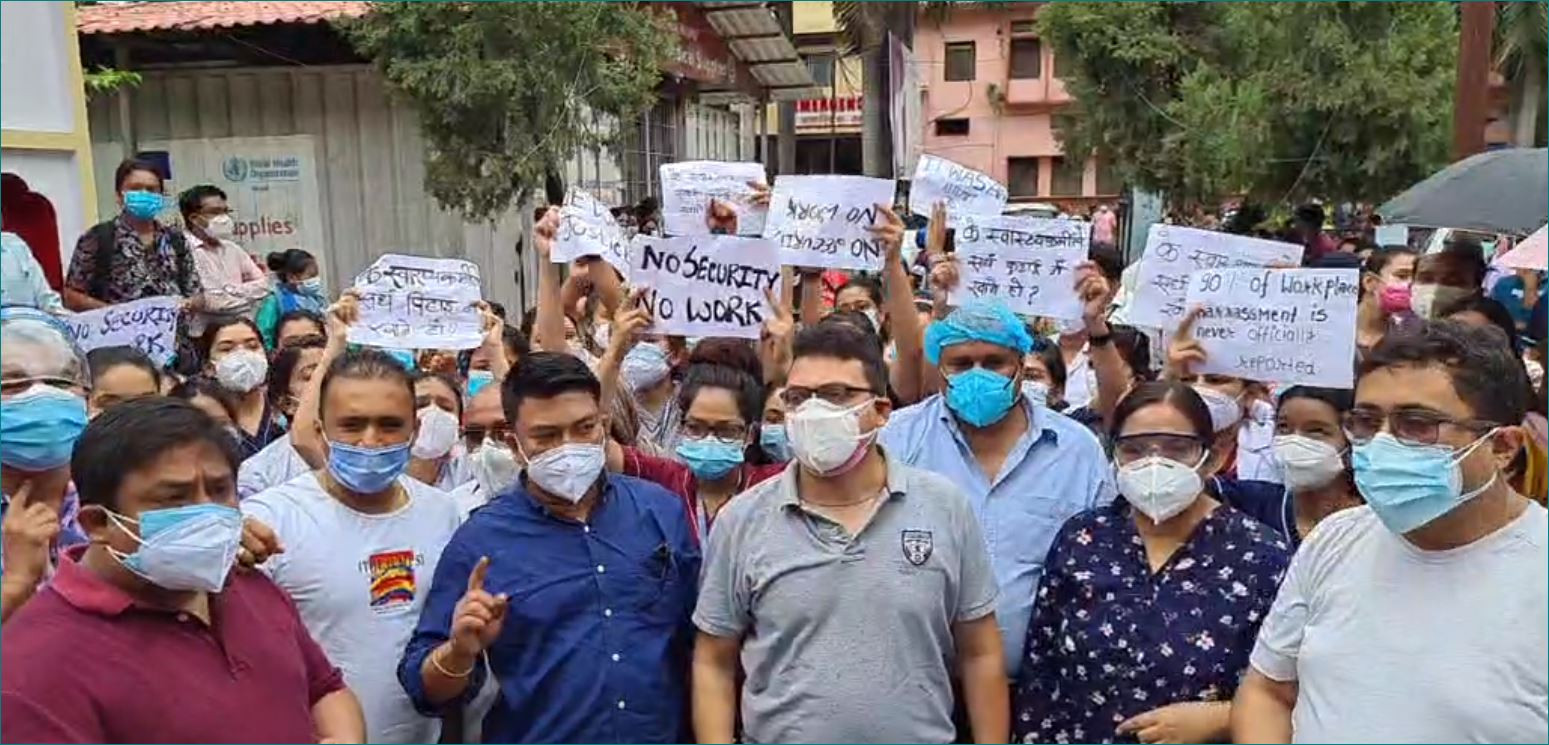As I write this, my heart is heavy with grief and smoldering with anger. Just today there was news of nurses getting mobbed and attacked by the relatives of a patient. It is deeply saddening to see incidents like these come up almost every week and makes one really wonder how many of such incidents actually occur weekly. These incidents make big noise and are all over the media for some days only to abate rather quickly without making actual changes to the laws or policies. Different groups of people react differently, some strongly condemn it with hashtags of ‘jailwithoutbail’, the others remark that we should at least not have to hear such news amidst the pandemic and then there are people who find a way to blame the healthcare workers by bringing it down to negligence or lack of communication. There are definitely many factors that fuel the epidemic of violence against healthcare workers, ranging from sheer hooliganism to lack of proper communication. These incidents could easily contribute to burnout which ultimately affects the quality of care that patients receive.
Healthcare workers burnout is a complex problem that is often not discussed in our society. It is a work related syndrome characterized by extreme emotional exhaustion, depersonalization, and a loss of sense of personal accomplishments. In simple words what it means is that they are in a state where they feel they are not in control of their lives, see patients as objects and deem themselves unable to help patients successfully. The factors leading to this state are many. The medical field is a highly demanding one where aspirants learn to prioritize their work before anything else early on. The robust training, followed by long work hours, paperwork and to top all that the struggle to maintain a balanced personal and professional life definitely serves as an alloy leading to burnout. Just the other day I saw a tweet by a doctor who shared a rather woebegone incident of the day his father-in-law committed suicide. He was in the clinic when he received a call from his wife informing him of the sad news and he responded by telling her how he was very busy at the moment and would get back to her later. Needless to say, this triggered a much needed discussion on the sheer impact work and responsibilities have on a physician’s life.
A study conducted by a team of Nepali doctors and students, which was published in BMC Psychiatry in 2020 stated that 48.8% out of 651 residents and medical students involved in the study were deduced to be burnt out. The increasing cases of abuse against healthcare workers leave them fearing for their safety; further fueling the likelihood of burnout. While this is definitely bad news for anyone working in the medical field or aspiring to do so, it also comes with implications to the public. In recent years there have been a number of studies that correlate physician burnout and its negative impact on the quality of patient care. Doctors are considered to be god and even expected to behave accordingly. There is no room for any mistake for them. This is why discussing this issue in the medical field is absolutely necessary. People need to see doctors for who they are, a human being trained to provide medical services. They too come with their own flaws.
Violence at the healthcare setting is not a problem of Nepal alone. The WHO states that 8-38 % of healthcare workers are subjected to work related physical violence at some point in their career. Many more are abused through verbal aggressions. But in Nepal, a lot of these incidents, especially verbal abuse are not seen as a problem and are never reported. We all know the resolution to this epidemic. We need stricter laws, better security and an overall fall in corruption to ensure implementation of laws. But the grim picture is that these solutions will never really be implemented efficiently or at least not unless doctors and nurses start losing their lives because of it. If not, for the well being of healthcare workers then at least for the sake of quality of health services for the public, I hope positive change in some form will be introduced. Until then it is probably in everyone’s best interest that medical students are taught some form of self defense and hospitals are made with hidden corners where we can go to hide when our lives are being threatened.
(The author is currently studying in the third year of MBBS at Maharajgunj Medical Campus)

